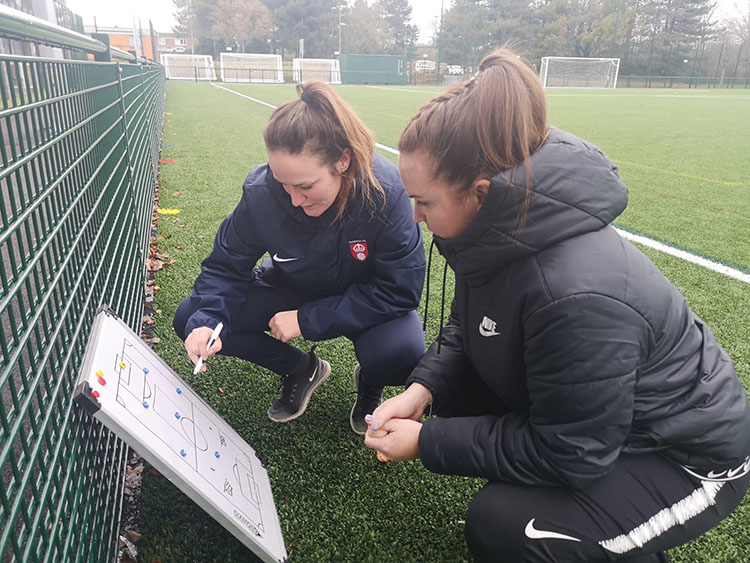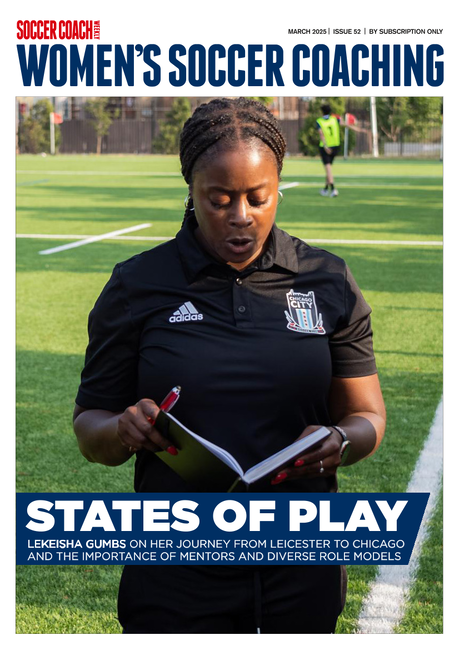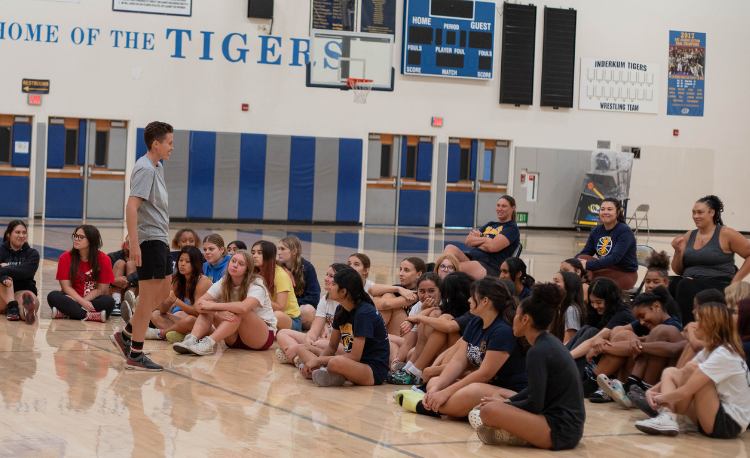You are viewing
1 of your 3 free articles
6 tips for developing a coaching philosophy
It is the blueprint that underpins every coach’s approach, whether by design or pure instinct. Alice Weaving explains how to build and test your philosophy
"To create a positive, challenging learning environment where individuals can play with personality, celebrate their uniqueness, and grow in confidence."
That is my current personal coaching philosophy, the blueprint underpinning everything I do as a coach.
Your philosophy defines your coaching practice, behaviours and actions and represents what is important to you. It helps you make key decisions based on the needs of your players and the environment you are in.
Developing a philosophy is an ongoing process, often influenced by past experiences and role models throughout your journey.
It is important to note your philosophy is not ‘fixed’, and will develop based on factors such as life experiences both on and off the pitch.
Although the core elements have remained the same, my philosophy has developed over time. It is important we recognise the reason behind these changes and reflect to identify why.
Here are six ways of establishing and developing your own coaching philosophy:
01. WRITE IT
Commit your coaching philosophy to paper and then read it aloud to yourself as many times as you like. Does it make sense to you? Is it something you can commit to and you truly believe in?
It is important that coaches understand a coaching philosophy is not right or wrong. Remember, it is your own unique blueprint - so own it.
02. LIVE IT
Bring your philosophy to life. From paper to the pitch, put your philosophy into practice and use this as the foundations for each session or matchday.
Can others identify what your philosophy is without reading the written statement? Are you practising what you preach? You might even have your philosophy visible when you come to plan your session - this way, it is easier to embed into the practice with mini challenges, interventions and more.
03. SHARE IT
Telling a co-coach your philosophy may seem daunting, as it can open you up to scrutiny if they cannot see you putting your philosophy into action.
However, being accountable and committing to your philosophy is a positive. Challenge is healthy and a good way to put our philosophy to the test.
04. CHALLENGE IT
There will be moments throughout your coaching journey where your philosophy will be put under pressure, and it is important to recognise these moments and reflect upon the outcome. Let’s put your philosophy to the test with a scenario.
Say your philosophy is based around equal playing time. It is Sunday morning and your team needs to win their game today to reach the semi-finals of the cup, something they have never achieved before in your club’s history. Do you...
A) Stick to your philosophy and ensure everyone has equal playing time with a risk of losing the game?
or
B) play your strongest team with a good chance of winning the game and have the other players sit out?
This is just one example of what might challenge you. It Is up to you to recognise these challenges, assess your own coaching behaviours and actions, and identify if this is a true reflection of your coaching philosophy.
05. REVIEW IT
Reflection will look different for everyone. It is important to be totally honest with yourself and ask difficult questions: Am I ‘living’ my philosophy? If so, what evidence is there to support this?
A good way to put yourself outside of your comfort zone and gather some evidence is to get a co-coach to observe you and provide open and honest feedback.
06. REPEAT IT
As coaches, our philosophy is constantly evolving so it is important to complete this process at least once per season to see how the challenges and experiences faced both on and off the pitch shape your philosophy moving forward.
Related Files
Newsletter Sign Up
Newsletter Sign Up
Discover the simple way to become a more effective, more successful soccer coach
In a recent survey 89% of subscribers said Women's Soccer Coaching makes them more confident, 91% said Women's Soccer Coaching makes them a more effective coach and 93% said Women's Soccer Coaching makes them more inspired.
*includes 3 coaching manuals
Get Inspired
All the latest techniques and approaches
Women's Soccer Coaching offers proven and easy to use soccer drills, coaching sessions, practice plans, small-sided games, warm-ups, training tips and advice.
We've been at the cutting edge of soccer coaching since we launched Soccer Coach Weekly in 2007, creating resources for the grassroots youth coach, following best practice from around the world and insights from the professional game.








